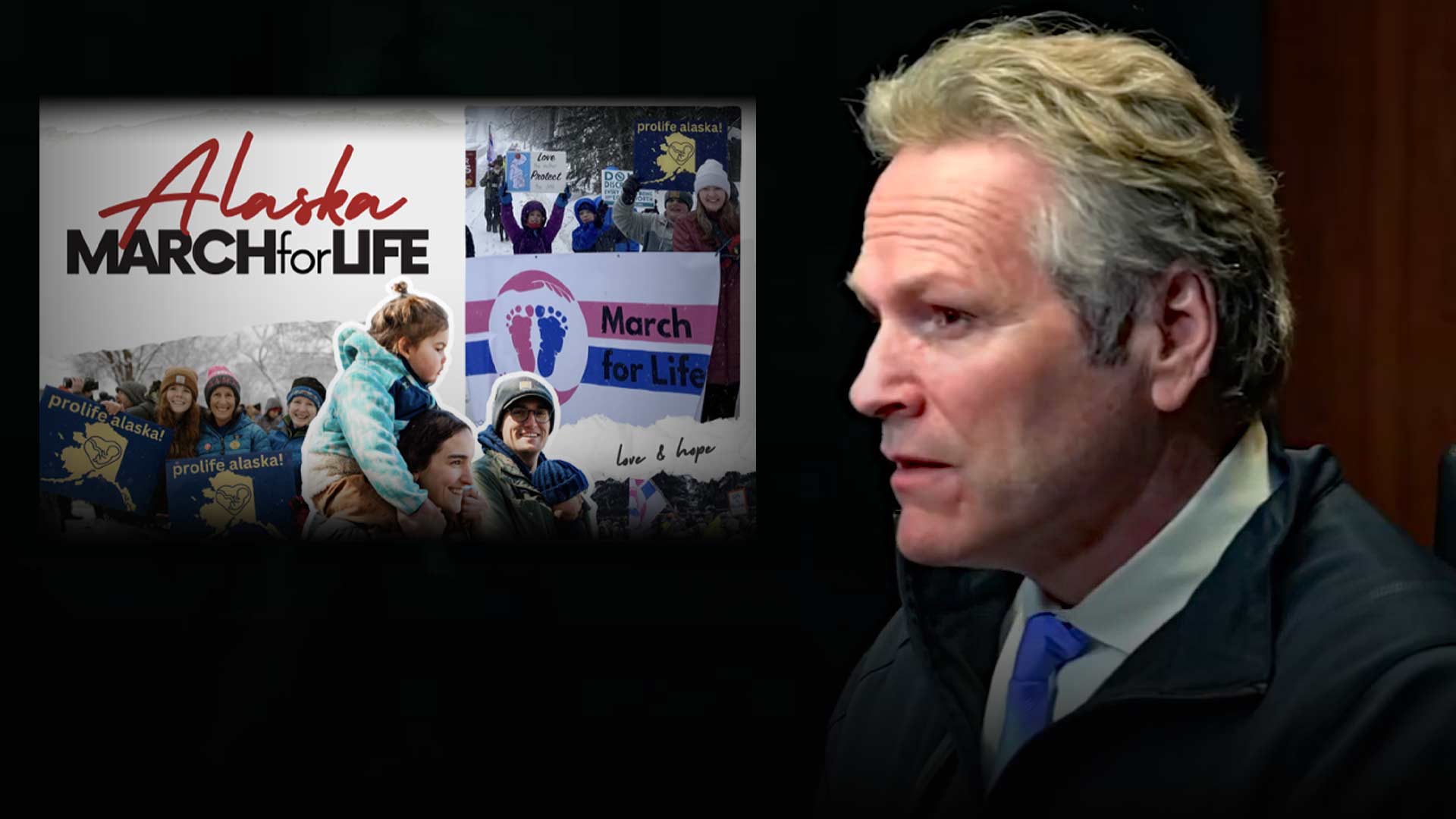
A leading national attorney warned of legal challenges if the Anchorage Assembly presses ahead with a proposed ban on counseling that aims to help minors overcome unwanted same-sex attraction or gender identity confusion.
“So much of this counseling is based on either counselors who come from a religious perspective and are offering guidance from their faith, whether it’s the Christian faith or Jewish faith or otherwise, to adherence to that faith,” said Matt Sharp an attorney with Alliance Defending Freedom.
Sharp spoke as part of a July 27 online workshop in Anchorage detailing concerns over an ordinance that will now be up for public hearing on at the Aug. 25 Anchorage Assembly meeting. The conference included nearly 70 participants including attorneys, clergy, medical professionals and civil rights advocates.
Bans against certain types of counseling are an area of law which is largely unsettled at this point.
Sharp said the Anchorage ordinance, which was introduced by openly gay Assembly Members Christopher Constant, Felix Rivera and Austin Quinn-Davidson, violates clear First Amendment rights by banning one particular viewpoint when it comes to same-sex attraction and gender identity issues.
“We can call this viewpoint discrimination,” he emphasized. “Under the First Amendment, you cannot prefer one viewpoint over another.”
By imposing fines on those who offer counseling from a certain perspective, Anchorage will expose itself to court challenges, he added.
Sharp recounted a case from earlier this month in which his organization defended a New York Jewish counselor who was banned from counseling people who had unwanted same-sex attraction or gender confusion. The New York City law was very similar to Anchorage’s. Ultimately the city wound up repealing the law and had to pay $100,000 in legal fees.
Bans against certain types of counseling are an area of law which is largely unsettled at this point, Sharp observed.
California and New Jersey have had these types of laws on the books for several years, but they have yet to be heard by the U.S. Supreme Court. Sharp thinks this could change in the near future.
Government cannot restrict speech on a counselor just because they don’t like its message.
He pointed to a free speech case in California in which the state tried to order pro-life pregnancy centers to provide abortion information to women. The U.S. Supreme Court sided with the pro-life centers, citing a violation of their First Amendment free speech rights. In ruling, the court also indicated that lower court decisions upholding California and New Jersey bans on certain types of counseling for same-sex attraction may have been wrong.
“The Supreme Court kind of signaled that those cases may have been wrongly decided and that the government cannot restrict speech on a counselor just because they don’t like its message,” Sharp said. “This is like fantastic news for us.”
He also pointed to a Florida case in which the 11th Circuit Court of Appeals is set to rule on the constitutionality of a ban against counseling that aims to over come same-sex attraction. Tampa Bay officials lost in state court and are appealing. A final ruling is expected later this year.
Ultimately, these types of laws are launching points for even greater restrictions.
“Even as a very practical argument, I would tell the city of Anchorage, we’re about to have a decision from a federal court of appeals on a city ordinance exactly like the one you’re considering,” Sharp observed. “Shouldn’t you wait, at the very least until we get that opinion before you take action on this … If I’m a city I would not want to hurt myself with all this litigation.”
Ultimately, these types of laws are launching points for even greater restrictions, Sharp observed. He noted that New York began with a ban on counseling for minors with unwanted same-sex attraction but then attempted to ban it for adults as well.
“You can definitely see how this starts us down the path to a bunch of other things,” he said.
Michigan is another location where state legislators have attempted to ban faith-based youth conferences from sharing a biblical view of sexuality with minors when it comes to LGBT concerns.
It is unethical for a therapist to impose the goals on the client.
“This is not scare tactics. These are things that have actually happened,” Sharp said. “It’s opening more restrictions, not only on counseling for adults but even other types of free speech and religious exercise in church and youth conferences and things like that.”
Sharp said the Anchorage ordinance is written in such a way that it could ban clergy and youth pastors from freely teaching biblical views of human sexuality to minors. This includes advising youth to resist same-sex attraction or sex outside of a traditional Christian view of marriage.
“That could all be subject to this ordinance,” he said.
Peter Sprigg, a senior fellow at the Family Research Council in Washington, D.C., participated in the online workshop. He emphasized that by only allowing pro-LGBTQ viewpoints in counseling the Anchorage ban would force clients into a certain outcome, regardless of their wishes.
ALASKA WATCHMAN DIRECT TO YOUR INBOX
“It is unethical for a therapist to impose the goals on the client,” he said. “The therapist who insists on a pro-gay counseling approach when that is not what the client is asking for is violating what is traditionally an ethical principle within the counselling profession.”
Sprigg said the Anchorage proposal is anti-freedom at its core.
“We always have to come back to the freedom issue,” he said. “On this issue we are on the side of freedom and allowing people with unwanted same-sex attractions to seek help to overcome them – or unwanted gender dysphoria to seek help, to overcome that.”






